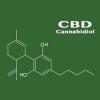"The preclinical research shows that scientists are a step closer to finding new ways to target leukemia, which is one of the most aggressive blood cancers. The Wilmot Cancer Institute investigators at the University of Rochester were able to block the growth of leukemia in mouse models and in human leukemia cell samples by using genetic tools to prevent taurine from entering cancer cells."
So that was a study on mice and human cell lines.
A Japanese study of actual leukemia patients from 1983.
https://www.med.nago...45n34p89_96.pdf
Intracellular levels of the free amino acid taurine were measured in circulating granulocytes and
mononuclear cells from 12 normal subjects and 27 patients with various types of leukemia, and in bone marrow cells from seven acute leukemias in blastic phase and 4 in remission. leukemic cells have consistently lower taurine levels compared to normal lymphocytes and granulocytes. Although taurine levels in the circulating granulocytes from patients with acute and chronic leukemias were normal, they were significantly lower in the group of patients with atypical AML. The lowest taurine levels were observed in ihe mononuclear cells from patients with AMl and All followed by those from patients with CMl and Cll, and then those from patients with atypical AML .ln AMl patients the levels increased to normal values during clinical remission. The bone marrow mononuclear cells of AMl in the blastic phase also had lower taurine levels compared to these in remission just same as peripheral blood cells do. These observations on the alteration in taurine content of both mononuclear cells in peripheral blood and bone marrow may be useful as a biochemical marker in diagnosis as well as for prediction of relapse and effectiveness of chemotherapy on patients with various types of leukemia.
















































